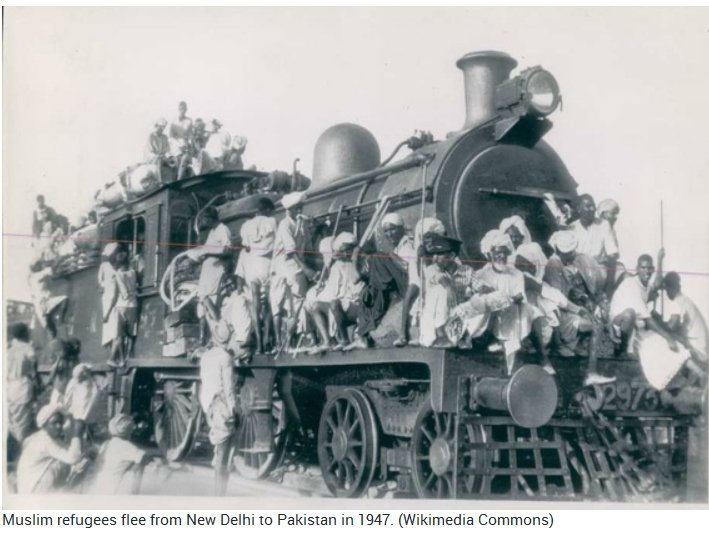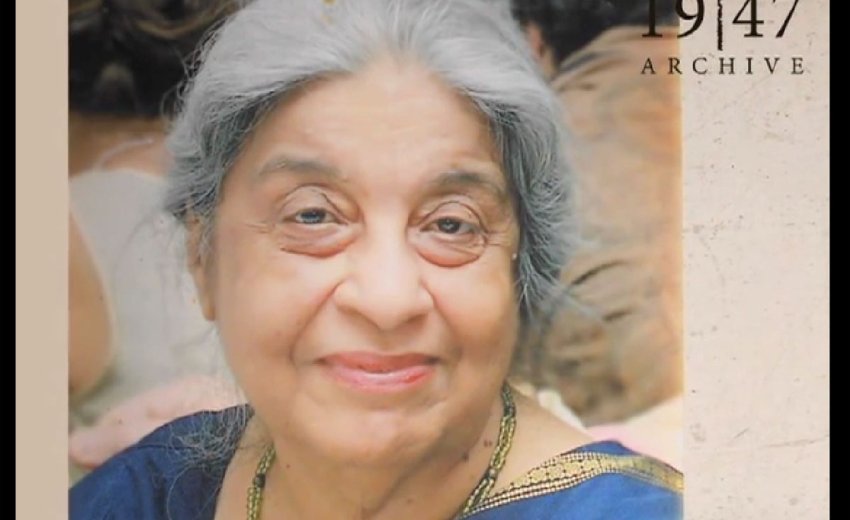The survivors of the largest mass migration in history are dying. One organization is scrambling to record their stories.

Aug 15 2014: This week, Indians and Pakistanis have been showering the night sky with fireworks, singing patriotic songs, and memorializing national heroes in observation of their respective independence days (Pakistan’s was Thursday, India’s Friday).
|
|
 |
| Published on Oct 29, 2013 Dr Guneeta Singh Bhalla (Watch Video entitled: Fair & Square) is a California-based physicist by profession. She is chronicling the eyewitness accounts of the 1947 Partition of victims and survivors. She has so far collected 700 Partition stories on camera and is looking to collect 10,000 such stories. Influenced by the Hiroshima witness archives, Dr Guneeta Singh set out to launch an initiative for the Partition. Consequently, 'The 1947 Partition Archive' formally came into being in 2011. She says she was motivated by the lack of appreciation of the tragedy of the 1947 Partition that affected millions of lives. "Oral histories is an authentic account of Partition," she says. Website: http://www.dayandnightnews.com/ Facebook: https://www.facebook.com/dayandnightn... Twitter: www.twitter.com/daynnightnews |
The legacy of tension has persisted for nearly seven decades, but one thing people on both sides of the India-Pakistan border have shared is the memory of partition's trauma. Now, though, people who were children in 1947 are in their seventies and eighties, meaning that these common memories are fading.
Guneeta Singh Bhalla hopes to preserve them. Born in India, Bhalla grew up hearing her grandmother recount fleeing Pakistan at independence. When Bhalla moved to the U.S. in middle school, she wondered why what her grandmother had called “an apocalypse” wasn’t covered in history classes alongside other important world events. On a trip to Hiroshima in college, Bhalla saw a memorial to the victims of the atomic bomb, with a collection of writings and videos from survivors. “That’s when it hit home,” Bhalla told me in an interview. “Watching these survivors talk about how their lives had completely turned upside down just for being at the wrong place at the wrong time made it real." She wanted to make partition real and understandable in a the same way.Thus was born the 1947 Partition Archive, a library of videos and audio clips capturing the memories of migrants who crossed the subcontinent's new borders during partition. Sukhmander Singh, who was in second grade at the time, recounts memories of “fear ... apprehension, not knowing what was going to happen,” and visiting empty houses where Muslims had lived in his village, which ended up on the Indian side of the border. "One Muslim boy was my friend ... We were together in the same class, you know? And he never showed up, but where did he go? We don't know."
Shane Ali recounts learning to forgive after watching a man shoot his mother and brother. "I forgive ... the evil people who killed my family," he says. "My own thinking is, just love everyone, hate no one."
The subcontinent's demographics are making these kinds of stories increasingly rare. The populations of both India and Pakistan are among the youngest in the world: 29.9 percent of Indians and 33.83 percent of Pakistanis are under the age of 14. This does not mean suspicion has faded on the subcontinent, however; 80 percent of Indians still view Pakistan as a very serious threat. For their part, only 13 percent of Pakistanis hold a favorable view of India.
But Bhalla, who is in her mid-30s, notes the enduring lesson of partition's memory for people who never experienced it firsthand. “We are pretty lucky to be living in a time and a place where it’s not so fragile that you have to up and leave your house and everything behind because of total chaos that is beyond our control.”
